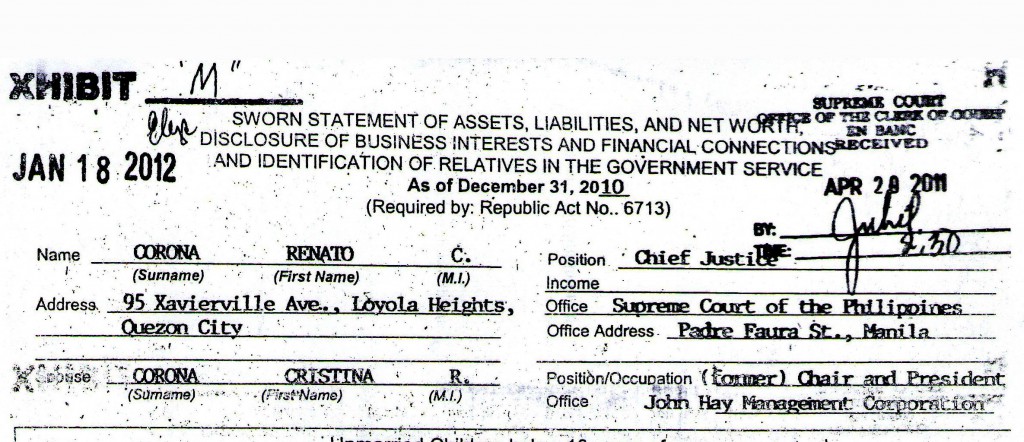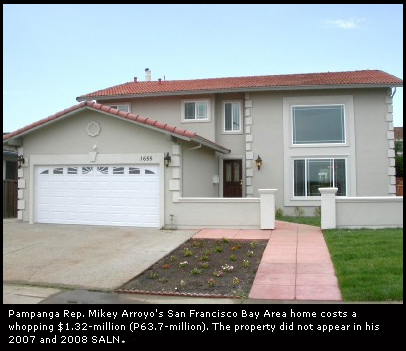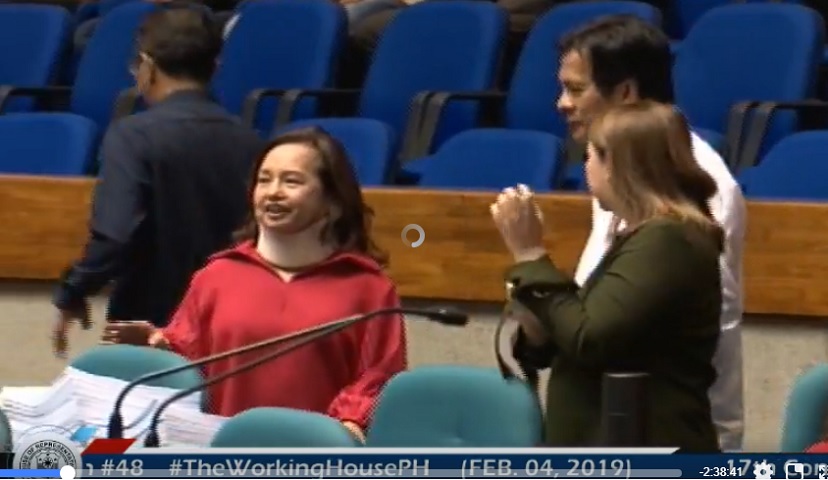The Office of the Ombudsman has recently suspended the release of Statement of Assets, Liabilities and Net Worth (SALN) under its custody, citing pending changes in its regulation.
The Ombudsman is the designated custodian of the SALN of the country’s top officials, and its suspension order makes the wealth of President Rodrigo Duterte and Vice-President Leni Robredo, among others, temporarily unavailable for public scrutiny.
In separate response letters dated June 18, the Ombudsman, through Assistant Ombudsman Pilarita T. Lapitan, informed several media organizations,including VERA Files, to direct their SALN requests to the offices of officials concerned.
“Please note that the processing of your request has been held in abeyance pending the review and revision of the policies and rules of the Office of the Ombudsman regarding the release of SALNs. In the meantime, may we advise you to direct your request to the office of the President,” Lapitan wrote to VERA Files.
This is not the first time the Ombudsman changed its policy on SALN requests.
In 2009, the office revised its guidelines and required requesting parties to submit a sworn statement instead of a request letter. Former Assistant Ombudsman Jose De Jesus Jr. argued that the office just wants to protect public officials from harassment and assured it would not violate the people’s right to information.
However, in 2012, the office modified its guidelines and no longer required the submission of sworn statements.
It is a constitutional duty of public officials to disclose their wealth. Here are three facts about the process of requesting SALNs from the Office of the Ombudsman.
What is the Office of the Ombudsman?
The Office of the Ombudsman was created by the 1987 Philippine Constitution as an independent constitutional body. The framers of the constitution envisioned it to be the “champion of the citizen” that will assist the people, especially the poor, in their complaints against public servants, and to serve as a watchdog against corrupt practices in the government.
Under Section 13, Article XI of the Constitution, the Office of the Ombudsman is vested with eight powers, duties, and functions to hold public officials and employees accountable to the people. These include investigative, directory, and recommendatory powers over issues and cases involving public servants.
Aside from its constitutional responsibilities, the Office of the Ombudsman also serves as one of the official repositories of SALNs of select government officials and employees.
Public servants, except those serving in an honorary capacity, laborers, and casual or temporary workers, are required to file their SALNs on or before April 30 every year, according to Republic Act 6713, also known as the Code of Conduct and Ethical Standards for Public Officials and Employees.
Officials entering or leaving a government position are also required to submit their SALNs within 30 days. They must also declare the business interests and financial connections of their spouses and unmarried children under 18 years old. (See VERA FILES FACT CHECK: SALNs, FOI in Congress explained)
According to the Civil Service Commission, SALNs of public officials and employees must be transmitted on or before May 30, with a grace period until June 30 every year, to the following offices:
- the national office of the Ombudsman for constitutional officials, the President, and the Vice President;
- the concerned Deputy Ombudsmen for Luzon, Visayas, and Mindanao for regional and local officials and employees, and uniformed personnel below the ranks of colonel and naval captain, senior superintendent, and commodore for the Armed Forces, the Philippine National Police, and the Philippine Coast Guard, respectively;
- Secretaries of the House and the Senate for congressmen and senators, respectively;
- Clerk of Court of the Supreme Court for justices of the Supreme Court, Court of Appeals, Sandiganbayan, and Court of Tax Appeals;
- Court administrator for judges of regional, municipal, and Shari’a district courts;
- Office of the President for national executive officials, officers from the ranks of colonel and naval captain of the Armed Forces of the Philippines, officers from the rank of senior superintendent of the Philippine National Police, officers from the rank of commodore of the Philippine Coast Guard; and
- Civil Service Commission for other appointive officials and employees of the Legislature, national government, Judiciary and Constitutional Commissions and offices, and Government-Owned and -Controlled Corporations and their subsidiaries in the regions.
According to the Revised Rules on Administrative Cases in the Civil Service, failure to file a SALN will result in suspension of one up to six months in the first offense. In the case of a second offense, erring officials may be terminated from service.
How is a copy of a SALN obtained from the Ombudsman?
Public access to SALNs is guaranteed by law and the constitution.
According to RA 6713, SALNs already transmitted to the appropriate offices of the Ombudsman must be readily available for copying or reproduction 10 days after they had been filed.
Those who want to get a copy of a SALN must file their requests at the appropriate public assistance bureau of the Ombudsman. They must present at least two IDs, one of which is government-issued. Members of the media must show their Press ID and students must present their school ID and an endorsement from proper school authorities.
In accordance with RA 6713, all public offices must “act promptly” on all letters and requests within 15 working days from receipt. In fact, the Ombudsman, according to the guidelines posted in its website, is supposed to act on each SALN request within just an hour.
Once a SALN request has been approved, the requester should pay for the reproduction cost: P5.00 per page for plain copies and P10 per page for certified copies.
If the requested SALN is unavailable, the custodian must indicate in the request form its reason for nonavailability.
However, there are also grounds for the rejection of SALN requests:
- the office concerned is not the official repository of the requested SALN;
- the requested SALN is not on file or in its actual possession;
- the purpose of the request is contrary to law, morals, or public policy;
- the request is for any commercial purpose other than by news and communications media for dissemination to the general public;
- it is prompted by sheer idle curiosity;
- the identity of the requesting party appears to be fictitious;
- the requester has a derogatory record of having misused any information previously furnished; and
- there are grounds to believe that the request is being made with a plainly discernible improper motive (e.g. harassment) or other analogous circumstances.
Those who will violate these provisions may face fines of up to P25,000.
It is also important to note that SALNs will be available to the public for only 10 years from the time they had been filed. After that, they will be destroyed, unless needed in an ongoing investigation.
Why is the accessibility of SALNs important?
Every Filipino has the right to access copies of SALNs as public documents. Making them accessible helps promote transparency and accountability from government officials. SALNs help in the lifestyle check of public servants.
Each SALN must contain the following:
- real property (its improvements, acquisition costs, assessed value and current fair market value);
- personal property and acquisition cost;
- all other assets such as investments, cash on hand or in banks, stocks, bonds, and the like;
- liabilities; and
- all business interests and financial connections of public officials.
SALNs have played a significant role in three impeachment trials in the country: the trials of former president Joseph Estrada, and former Supreme Court Chief Justices Renato Corona and Maria Lourdes Sereno.
Estrada’s misdeclaration of his assets in his SALN fueled corruption allegations against him. He was ousted in 2001, even before his impeachment trial ended. He served nearly three years in office — the shortest presidential term in history.
In 2012, Corona was impeached due to his failure to declare his multi-million-peso financial assets.
Last year, Sereno, the first female Supreme Court chief justice, faced an impeachment complaint before the House of Representatives for various grounds, including the non-filing of her SALNs when she was still a professor at the University of the Philippine College of Law. Sereno also allegedly did not declare her earnings as counsel in the Philippine International Air Terminals Company Incorporated (PIATCO) case in her SALN, which her camp denied. However, Sereno’s trial was preempted by the Supreme Court’s ruling on the quo warranto petition filed against her by Solicitor General Jose Calida, also in relation to the non-filing of her SALNs.
Sources
Office of the Ombudsman, Response from the Office of the Ombudsman
Official Gazette, Republic Act 6713
ABS-CBN News Online, Ombudsman’s stricter rules on SALN hit, September 10, 2009
GMA Network, Ombudsman seeks to ‘protect confidentiality’ of SALNs in new rules, September 8, 2009
Office of the Ombudsman, Memorandum Circular Order No. 1 series of 2009
Official Gazette, 1987 Philippine Constitution
Official Gazette, Excerpts from the Record of the Constitutional Commission, July 26, 1986: Discussions on creating the Office of the Ombudsman, July 26, 1986
Civil Service Commission, Resolution No. 1500088 – Amendment to the CSC Reso. No. 1300173
Civil Service Commission, Revised Rules on Administrative Cases in the Civil Service
Office of the Ombudsman, Memorandum Circular No. 1, series of 2019
Office of the Ombudsman, Memorandum Circular No. 3, series of 2012
Office of the Ombudsman, Request for Copy of Statement of Assets, Liabilities and Net Worth (SALN)
Archive.org, Can Estrada Explain His Wealth?
Rappler, Corona found guilty, removed from office, May 29, 2012
House of Representatives, House panel OKs impeachment vs. Sereno, March 19, 2018
House of Representatives, Statement of Speaker Pantaleon Alvarez on Supreme Court ruling in Sereno’s case, June 19, 2018
ABS-CBN News Online, Sereno got P30-million Piatco case fee in tranches, only portion declared in 2010 SALN: lawyers, September 27, 2017
ABS-CBN News Online, READ: The Supreme Court decision ousting Chief Justice Sereno, May 11, 2018
ABS-CBN News Online, Supreme Court rules CJ Sereno ouster final, June 19, 2018
Rappler.com, Sereno now has 11 U.P. SALNs on file, April 12, 2018
World Bank Institute, Journalistic Legwork that Tumbled a President
(Guided by the code of principles of the International Fact-Checking Network at Poynter, VERA Files tracks the false claims, flip-flops, misleading statements of public officials and figures, and debunks them with factual evidence. Find out more about this initiative and our methodology.)




